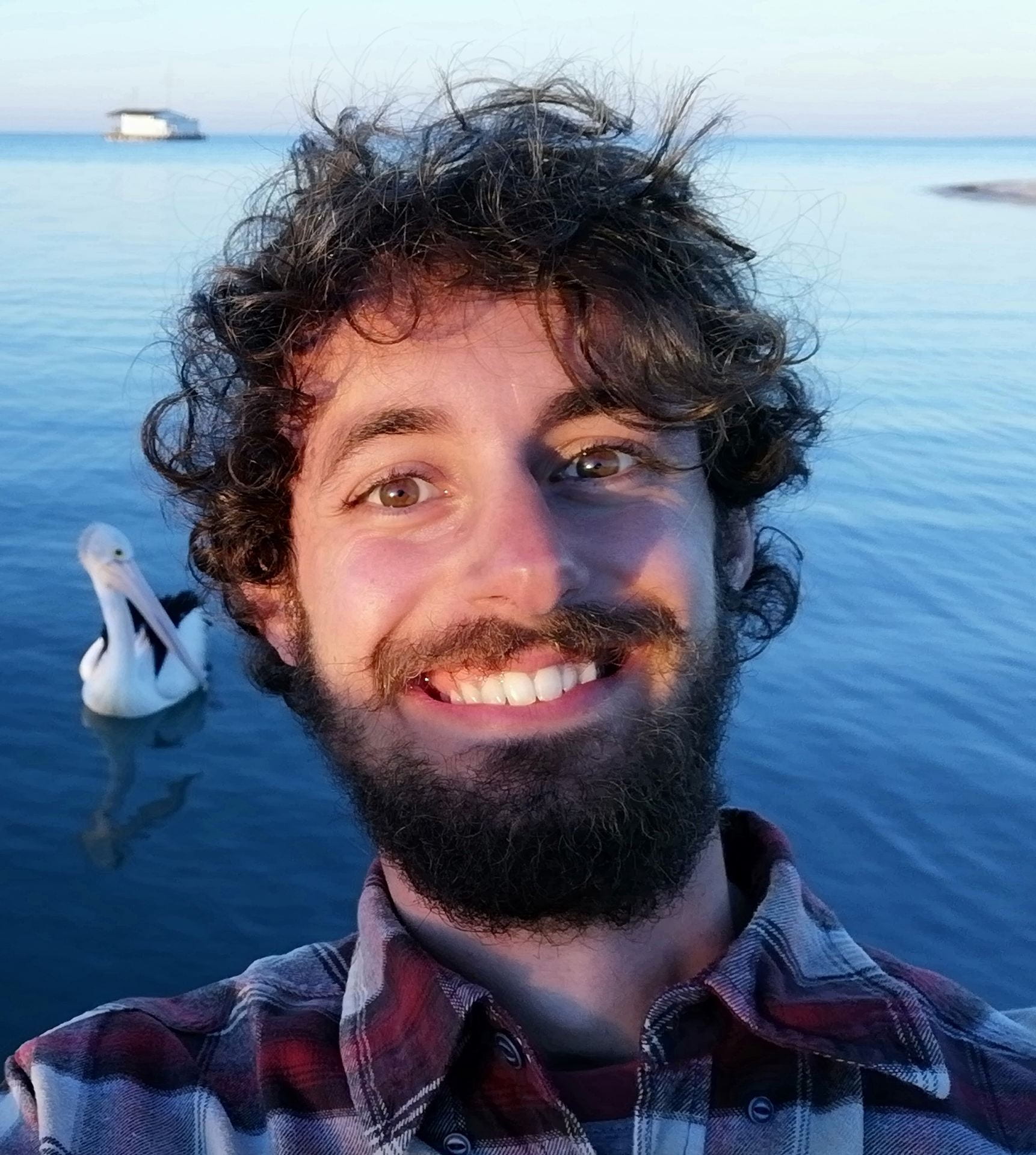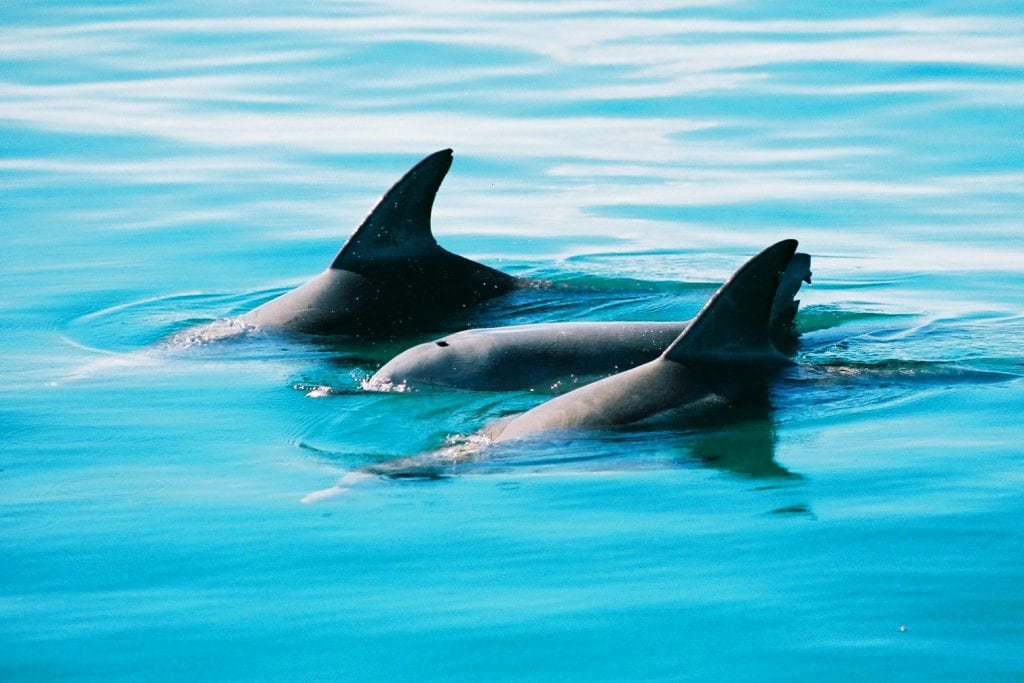This week we are spotlighting the work of Riccardo Cicciarella, a student in the Master of Marine Biology program. He graduated with his bachelor’s degree from Humboldt State University in California in 2018.
Riccardo is from Modica, a small town in Sicily, Italy. He comes from a big family and grew up on the coast of the Mediterranean Sea. His father started teaching him to sail when he was just seven years old. This sparked a love of the ocean and eventually an interest in marine biology.
Riccardo’s research involves the ranging behavior of bottlenose dolphins in Shark Bay, Western Australia.

“This population shows a remarkable nested alliance system, it is the most complex one after humans,” Riccardo says. “Males cooperate in pairs and trios (1st-order alliance) to consort individual females, but their ability to retain consorted females depends on two higher levels of alliance formation (2nd and 3rd-order allies). Most important are 2nd-order alliances; stable, long-lasting associations of 4 – 14 males who cooperate to steal females from other 2nd-order alliances and defend against such attacks and which represent the core social unit of male dolphins in Shark Bay. Males may also be assisted in contests by males from other ‘friendly’ 2nd-order alliances (3rd-order allies). In our study area, the northern habitat is thought to be of better quality because northern 2nd-order alliances consort females at a higher rate compared to southern alliances. Over the past three decades, observers noticed that some frequently observed 2nd-order alliances in the north changed their range south as they became older and smaller (some alliance members may die, therefore, the overall alliance size decreases). It seems likely that 2nd-order alliances become less competitive as they become smaller and older avoid areas currently occupied by other, larger 2nd-order alliances. My work has been determining if the perceived range shift among such 2nd-order alliances is real.”
As humans, we tend to have a habit of overlooking the social lives of other animals. Dolphins are complex and intelligent. Their mating patterns and behaviors can be just as interesting. For Riccardo, this field of study offers a closer look. “This work interests me because it allows me to look into the ‘private’ life of animals that have a very complex social system,” he says. “It excites me to study the ‘drama’ that unfolds between male alliances and their relationships. This is important because by studying the personality and social complexity of these animals, it reminds me that their life, as well as other animal lives, are no different from ours.”

While his research is rewarding has difficulties that come along with it as well. Riccardo says, “The most challenging part of my research is to work with animals on which is hard to collect data. Natural systems are very unpredictable and you cannot have controlled conditions. This often requires a lot of thinking into the way you collect data and the type of data you can collect. Finally, given the absence of controlled conditions and the generally smaller sample size, the statistical analysis and models need to take into account many variables that would normally be controlled for in laboratory conditions.”
Riccardo has also completed spatial models, despite never having taken a programming class. This pushed him out of his comfort zone and allowed him to learn a lot. “Being able to run complicated models on a platform I never used before made me feel very accomplished. I think people should not be scared to venture into something you do not know. You would be amazed at what you are capable of doing,” he says.
Riccardo wants to move beyond researching how these dolphins have moved over time. Instead, he wants to draw conclusions about why. He plans to continue his work in a Ph.D. program. Eventually, he hopes to work for a non-governmental organization where he can use his knowledge of animal behavior to assist with management and conservation efforts.
In his free time Riccardo enjoys sailing, windsurf, surfing, playing guitar, reading, and playing board games.
Check out his website to find out more about his work or follow him on Twitter:
http://www.sharkbaydolphins.org/dolphin-alliance-project/
@RiccardoCiccia1
